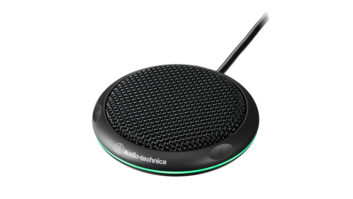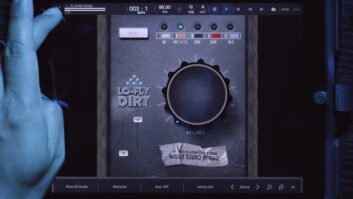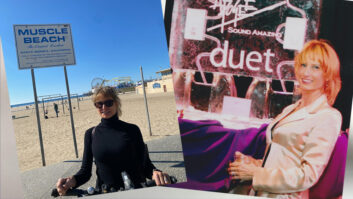
Especially in these economically troubled times, independent-labelowners wear their difference from the majors like a badge of honor.They are quick to point out that whatever success they achieve isaccomplished on lower budgets, with smaller marketing machines andfewer connections. Scott Robinson and Dan Herrington — partnersin the two-year-old, Nashville-based Dualtone label — have earnedtheir badges and wear them proudly. “With the majors’ budgets andtheir business models, they sign 10 artists, seven or eight fail, oneor two breaks even, and one pays for all 10,” Robinson explains.“With our business model, our first year of business, we had ninedeals. Seven made money; two failed. So, we had the complete oppositeof the majors’ result. We’re not making 500 million dollars a year, butwe’re filling a void that exists within the industry, and it’sworking.”


Robinson and Herrington are both former major-label insiders whoworked in artist management (Robinson), marketing and sales(Herrington) for Arista and BMG, respectively. Their inside knowledgegives their boutique roots/country label a leg up on a lot of otherindies; when they need to, they can play the majors’ game. “Wehave major distribution,” Robinson says. “We’re with BMG.When Dan and I started this company, we did research into why a lot ofgreat independent labels fail. There are a lot of cool labels out therethat put out great music, but a lot of them were operated by folks whodidn’t come from the industry. They didn’t know how to get records onthe radio. They didn’t know how to get records written about inRolling Stone. They didn’t know how to get records into Wal-Martor Tower or Best Buy. We know the buyers at the chains and themom-and-pops. We know the writers at the major publications. We knowthe radio programmers. We had access to a lot of resources. Our firstyear in business, we almost had a Gold record; our second year inbusiness, we won a Grammy.”

Singer/songwriter Jim Lauderdale received the Best Bluegrass AlbumGrammy this year for Lost in the Lonesome Pines, his secondcollaboration with the legendary Ralph Stanley and the Clinch MountainBoys. Lauderdale is typical of the Dualtone roster, which also includesartists such as David Ball, Chris Knight, Radney Foster and VictoriaWilliams — all talented writers and performers who had careersbefore signing with Dualtone but have flourished since. “I justthink the industry as a whole has to be really conscious aboutcareers,” Robinson says. “Artists’ careers are not adisposable commodity. I would like to see a return to the days whenartists have multiple-record careers instead of one-record careers. Youlook at the Billboard Top 200 today, and it’s very hard to findany names who are even on their third or fourth record.
“I’ve been on both sides of the table,” Robinsoncontinues. “I’ve been pitched, and I’ve made the pitches. I knowhow a label works, and I know the artist’s needs. So when we createdDualtone, I said, ‘Lets create something more artist-friendlythat is more realistic, and let’s sign artists that we believe need tobe around for the next 10 albums.’ We’re not about signing anact, dropping an act, signing an act, dropping an act, but signing anact and building a career across multiple records. It’s about makingthe right kind of records, smartly.
“A perfect example of where we can cut corners and be morecost-effective is recording costs. Our costs are probably from aneighth to a third of what the majors spend. We spend anywhere from$10,000 to $50,000, depending on the project. The majors spend from$75,000 to $350,000. We never felt like if we made a record that costus $30,000, that if we spent another $50,000, we would have sold100,000 more records.
“Or online distribution,” Robinson continues.“It’s not the main source of income, but it is a revenue center.We put our site up for $1,500 or $2,000 when we started our company,and within 60 days, it had paid for itself. Not that we’re sellingthousands of units, but we’re selling hundreds of units, and it’s agreat information site: a great way to help promote and sellproduct.”
Dualtone is working from its own well-conceived, self-determinedplan and having decent success at it, far from the madding crowd at themajor labels. But Robinson believes that the solution to the majors’problems is pretty obvious. “They just need to have greatmusic,” he says. “Look at Norah Jones, Buena VistaSocial Club, O’ Brother — records that didn’t have a lot ofairplay in the beginning. I think the industry needs to stop makingrecords for the 13- to 16-year-olds and start making more great music,because when it’s offered up, people react. In other words, let’s notmake a lot of disposable music. Let’s make great music that we’re proudof and can stand the test of time.”
Barbara Schultz is Mix’s senior associate editor.

Dualtone’sScott Robinson speaks out on the label’s latest release:Lonesome, Onry and Mean: A Tribute to Waylon Jennings, and on addingJune Carter Cash to the artist roster.







